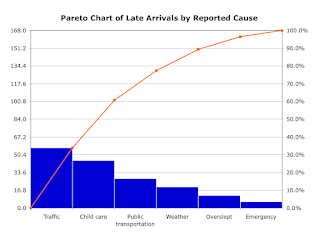I shared a fact with a friend about life expectancy. "Since 2000, life expectancy around the globe has gone up nearly 5 years. It went up 10 years in Africa."
This friend's response? "Just because you're living longer doesn't mean you're happy."
I've shared other facts, like, "We've now had 68 uninterrupted months of job creation during which we've gained 13.7 million jobs."
Responses typically include, "Yeah but there are so many people who have stopped looking for work," or, "Wages haven't been growing as much as they were in the late 1990s."
Today, the wake of the Orlando mass shooting, people are calling for better regulations on gun purchases and responses include, "You will always have people who break the law. They'll find a way to kill people regardless of what you do."

During Medieval Times, these 'yes but' people ruled the world. They were not interested in progress. Didn't even believe it was possible, really. They were interested in perfection though. The result? That period between the collapse of the Roman Empire and the Renaissance was a time marked by wretchedly short lives, abject poverty, and a near absence of freedoms.
During the last 200 to 500 years (depending on how you count it) the West has embraced the notion of progress and mostly abandoned the notion of perfection. A typical tool for progress is a Pareto chart.
The Pareto chart simply categorizes causes of failure. In this simple example, it lists the reasons for running late to work. Notice that it then prioritizes them by most frequent to least frequent. What does this do? Well, it doesn't lump all causes into one pile. Instead, it shows the most probable reason and lets a team focus on addressing that first. Of all the things we could do, what would make the biggest difference? The question isn't, "How do we make this perfect." The question is, "How do we make this better?" And in this it's a great example of how progress is made; just address one issue at a time and make sure that things are better next month or next year than they are now.
Small incremental changes can become huge. If you increase incomes by 2.1% per year, they'll be 8X higher in a century than they are today. (That's essentially what happened from 1900 to 2000.) If you increase your wealth by 8% per year, it'll be 22X larger in 40 years, at the end of your career. Progress is incredibly powerful. Perfection, because it is unattainable, is at best paralyzing and at worst destructive.
We will always have violence, early deaths, and unemployment. That doesn't mean that we can't - and haven't - made progress on those fronts. Progress starts with focusing on what we can do, not what we can't, with practical solutions rather than philosophical differences. Oh, and a belief that things can get better and not that the world is steadily and surely getting worse. To put it differently, progress depends on a belief in progress.










